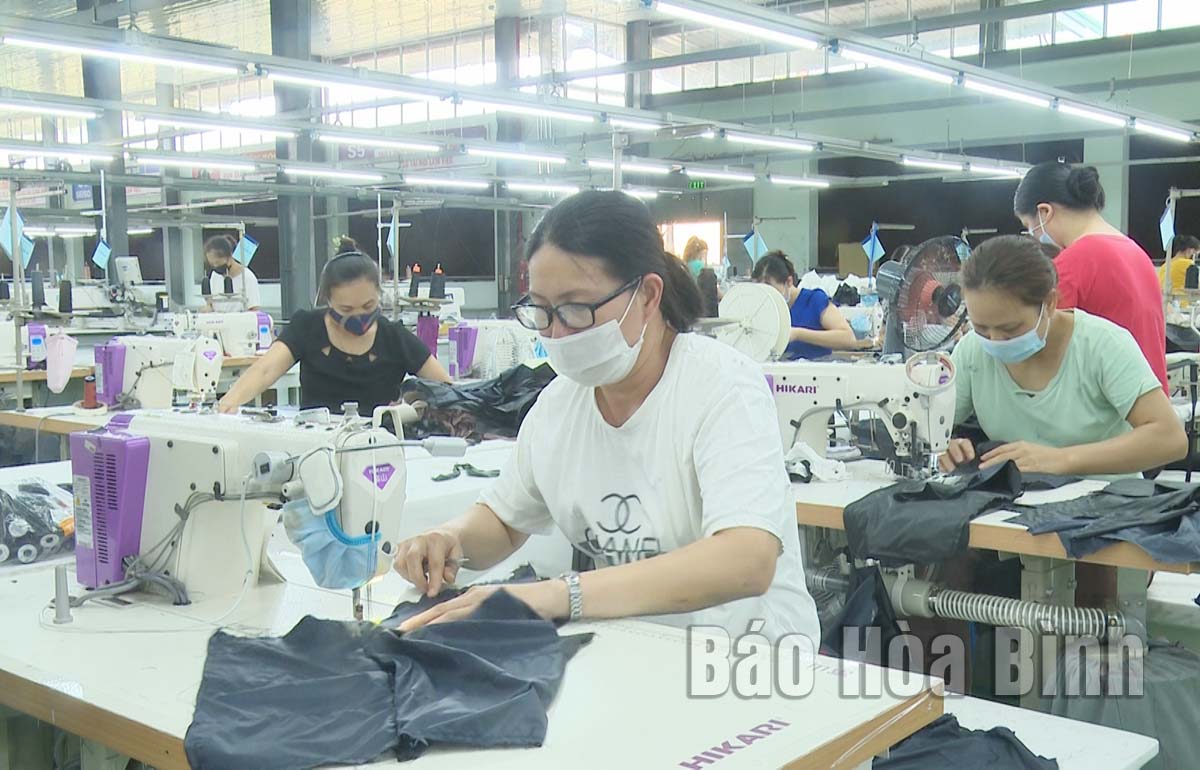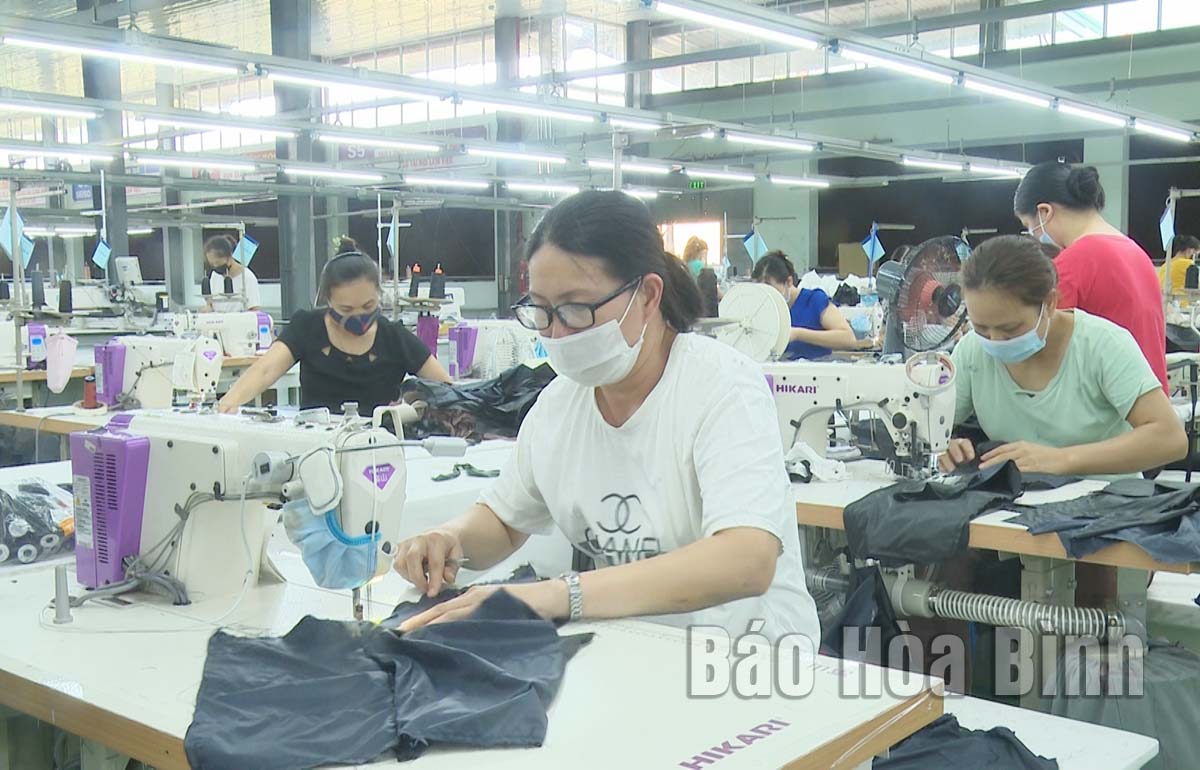
(HBO) – Statistics showed that the province now has 25 grassroots trade unions in non-State business sector. Over the past years, they have well performed their role in protecting and caring for legitimate rights and interests of workers. Many of them helped balance the interests of employers and employees, thus contributing to improving the efficiency of production and trade in enterprises.

Workers at Thanh Son
One-Member Co. Ltd in Hoa Binh city have stable lives and jobs.
A number of firms paid attention to caring for workers’ lives, protecting their
legitimate rights and interests, and improving their income. Many grassroots
trade unions actively inspected and monitored the implementation of policies
for workers, actively offered suggestions to authorities to meet their
legitimate aspirations, and dealt with important issues regarding employment,
income, and payment of social, health and unemployment insurance premiums. Amid
the COVID-19 pandemic over the past year, they renewed operating methods to
overcome difficulties together with enterprises, adopted advanced technologies
to cut costs and improve products’ competitiveness, thus bringing profit and
maintaining stable income for trade union members and workers.
The Midori Apparel Vietnam Hoa Binh Co. Ltd based in Luong Son industrial park
is a wholly foreign-invested firm with over 1,200 workers. After going into
operation, it established a grassroots trade union to ensure legitimate rights
and interests of workers. As a result, workers’ income have improved, reaching
7 million VND on average per person each month. All workers were equipped with
protective suits and undertook training courses on labour safety and hygiene.
Due attention was paid to other policies such as salary, year-end and
productivity bonuses.
Reality showed that grassroots trade unions in enterprises are gradually
adapting with changing requirements of labour relationship. Many firms are
aware that trade unions offer chances for them to prosper, making important
contributions to their development plans.
According to data from the Hoa Binh Provincial Party Committee, the industrial production index for the first six months of 2025 is estimated to have increased by 20% compared to the same period last year. This marks the highest year-on-year growth rate for this period since 2020.
In the first six months of 2025, Hoa Binh province’s export turnover was estimated at 1.145 billion USD, marking an 18.11% increase compared to the same period in 2024. Import turnover was estimated at $ 804 million, a 17.15% increase, which helped the province maintain a positive trade balance.
The lives of the ethnic minority farmers in Tan Lac district have gradually improved thanks to the new directions in agricultural production. This is a testament to the collective strength fostered through the professional associations and groups implemented by various levels of the district’s Farmers’ Union.
With the motto the "product quality comes first,” after nearly one year of establishment and operation, Muong village’s Clean Food Agricultural and Commercial Cooperative, located in Cau Hamlet, Hung Son Commune (Kim Boi district), has launched reputable, high-quality agricultural products to the market that are well-received by consumers. The products such as Muong village’s pork sausage, salt-cured chicken, and salt-cured pork hocks have gradually carved out a place in the market and they are on the path to obtaining the OCOP certification.
In the past, the phrase "bumper harvest, rock-bottom prices" was a familiar refrain for Vietnamese farmers engaged in fragmented, small-scale agriculture. But today, a new spirit is emerging across rural areas of Hoa Binh province - one of collaboration, organisation, and collective economic models that provide a stable foundation for production.
Maintaining growing area codes and packing facility codes in accordance with regulations is a mandatory requirement for agricultural products to be eligible for export. Recently, the Department of Agriculture and Environment of Hoa Binh province has intensified technical supervision of designated farming areas and packing facilities to safeguard the "green passport" that enables its products to access international markets.



